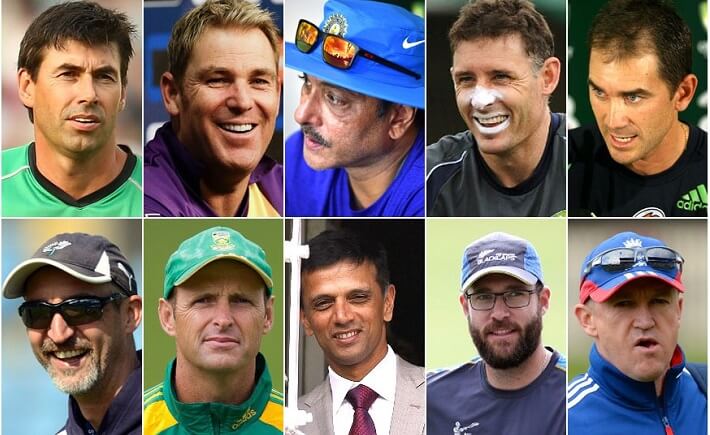|
Listen to this article
|
The India National Cricket Team has a storied history filled with legendary players, iconic moments, and a rich tradition of excellence on the field. But behind every successful team, there’s often an unsung hero — the coach. Over the years, the team has been fortunate to have some remarkable individuals guiding them, shaping their destiny, and contributing to their success. Let’s delve into the fascinating world of India National Cricket Team coaches.
- John Wright – The Kiwi Pioneer: New Zealand’s John Wright was the man who kick-started the trend of foreign coaches for the Indian cricket team. Appointed as the head coach in 2000, he brought a fresh perspective and a meticulous approach to the team. Wright’s tenure saw India’s resurgence in international cricket, with notable victories in both Tests and One Day Internationals. His calm demeanor and emphasis on discipline were instrumental in the team’s transformation into a world-beating side.
- Greg Chappell – The Controversial Figure: Greg Chappell, the Australian cricket legend, took over as the coach in 2005. His tenure, however, was marred by controversies and internal strife. While his cricketing acumen was unquestionable, his alleged interference in team matters and strained relationships with senior players left a sour taste. Chappell’s tenure remains a chapter of Indian cricket history filled with both promise and turmoil.
- Gary Kirsten – The Silent Architect: South African Gary Kirsten is perhaps the most beloved figure in Indian cricket coaching history. Appointed in 2008, he led the Indian team to numerous milestones, including the coveted 2011 ICC Cricket World Cup triumph. Known for his unassuming nature and hands-off approach, Kirsten let the players thrive and express themselves, creating a harmonious environment that allowed individual talents to shine.
- Ravi Shastri – The Voice of the Team: Former Indian all-rounder Ravi Shastri assumed the role of head coach in 2017, and his tenure marked a period of aggressive and fearless cricket. Known for his booming voice and no-nonsense attitude, Shastri instilled a sense of confidence and swagger in the team. His mantra of “Fearless Cricket” saw India assert itself as a dominant force in world cricket.
- Anil Kumble – The Legendary Spinner Turned Mentor: Anil Kumble, one of India’s greatest bowlers, took up the coaching mantle in 2016. His tenure was marked by an emphasis on discipline, work ethic, and professionalism. Kumble’s wealth of cricketing knowledge and experience was invaluable to the team, but his time as coach was relatively short-lived due to differences with the team’s captain at the time.
- Rahul Dravid – The Wall as the Mentor: Rahul Dravid, affectionately known as “The Wall” during his playing days, transitioned into a coaching role as the head of the National Cricket Academy. Dravid’s calm and composed demeanor, along with his dedication to nurturing young talents, has been instrumental in shaping the future of Indian cricket. His influence on the next generation of cricketers is immeasurable.
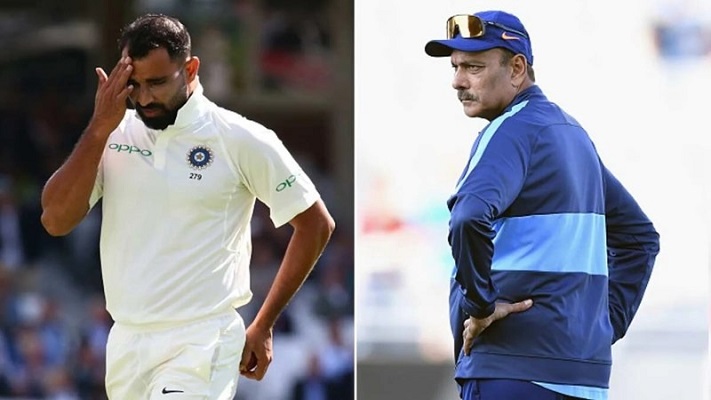
In the world of cricket, where talent and skill are celebrated, the role of a coach often goes unnoticed. However, these coaches have left an indelible mark on Indian cricket, contributing to the team’s rise to the pinnacle of the sport. Whether it’s the strategic brilliance of John Wright, the calm guidance of Gary Kirsten, or the passionate approach of Ravi Shastri, each coach has played a crucial role in shaping the destiny of the India National Cricket Team, making them an integral part of the nation’s cricketing legacy.
Coaches of Indian Cricket Team
| Coach | Nationality | Tenure | Coaching Style | Achievements |
|---|---|---|---|---|
| John Wright | New Zealand | 2000-2005 | Meticulous, Calm | Resurgence in Test and ODI cricket |
| Greg Chappell | Australia | 2005-2007 | Controversial, Hands-On | Mixed results, strained player relationships |
| Gary Kirsten | South Africa | 2008-2011 | Hands-Off, Empowering | 2011 ICC Cricket World Cup triumph |
| Ravi Shastri | India | 2017-2021 | Aggressive, Confident | Success in Test and Limited Overs formats |
| Anil Kumble | India | 2016-2017 | Disciplined, Professional | Short-lived tenure, work ethic emphasis |
| Rahul Dravid | India | 2021-present | Nurturing, Mentorship | Developing young talents, National Cricket Academy leadership |
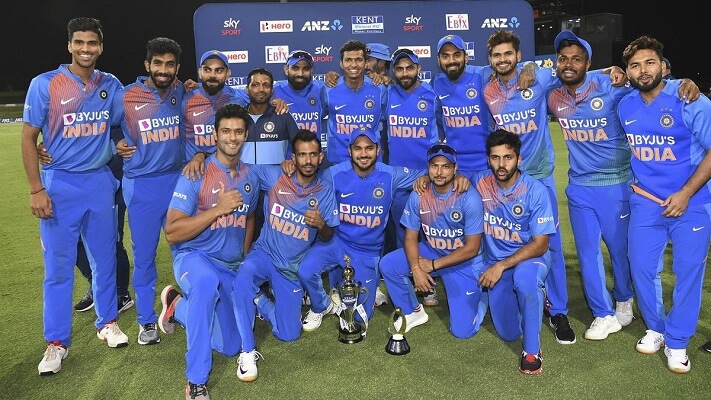
Please note that the achievements mentioned are general summaries of the coaches’ impact during their respective tenures and may not encompass all their contributions to Indian cricket. Each coach brought their unique style and approach to the team, leaving their mark on the nation’s cricketing history.
All Cricket Team Coach List
| Coach | Nationality | Tenure | Notable Achievements |
|---|---|---|---|
| Lala Amarnath | India | 1953-1955 | Early coaching role, test cricketer |
| Dattu Phadkar | India | 1959-1960 | A short stint as coach |
| Polly Umrigar | India | 1961 | Brief coaching role |
| Hemu Adhikari | India | 1965 | Limited coaching period |
| Bishan Bedi | India | 1990-1991 | A short stint as coach |
| Ajit Wadekar | India | 1992 | Coaching role after retirement as a player |
| Sandeep Patil | India | 1996 | Brief coaching stint |
| Anshuman Gaekwad | India | 1997-1999 | Contributed to India’s cricket development |
| Kapil Dev | India | 1999-2000 | A short stint as coach |
| John Wright | New Zealand | 2000-2005 | Resurgence in Indian cricket |
| Greg Chappell | Australia | 2005-2007 | Controversial tenure |
| Chandu Borde | India | 2008 (interim) | Interim coach |
| Gary Kirsten | South Africa | 2008-2011 | 2011 ICC Cricket World Cup triumph |
| Duncan Fletcher | Zimbabwe | 2011-2015 | Coaching during a transition phase for the team |
| Ravi Shastri | India | 2014 (interim), 2017-present | Success in various formats |
| Anil Kumble | India | 2016-2017 | Short-lived tenure, emphasis on discipline |
| Rahul Dravid | India | 2021-present | Nurturing young talents, National Cricket Academy leadership |
John Wright
John Wright, the New Zealand cricketing stalwart, left an indelible mark during his tenure as the coach of the Indian National Cricket Team from 2000 to 2005. Wright’s arrival marked a turning point in Indian cricket, ushering in a new era of professionalism and discipline. His coaching style was characterized by meticulous planning, a calm demeanor, and a deep understanding of the game. Under his guidance, the Indian team witnessed a resurgence in both Test and One Day International formats.
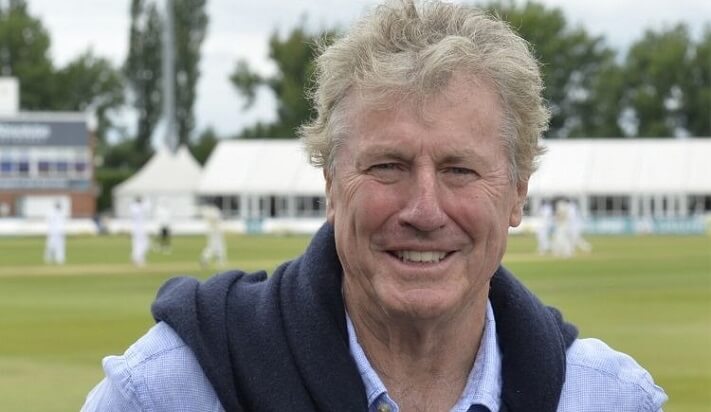
One of the most memorable achievements during John Wright’s coaching stint was India’s impressive performance in the 2003 ICC Cricket World Cup, where they reached the final. His ability to forge a strong team spirit and foster individual talents played a pivotal role in India’s success. Beyond the statistics and victories, Wright’s legacy lies in instilling a sense of self-belief in the players and setting a standard of excellence that would continue to shape Indian cricket for years to come. His contributions to the Indian cricketing landscape are a testament to the impact a skilled and astute coach can have on a team’s fortunes.
Here’s a table summarizing some of John Wright’s highest achievements as the coach of the Indian National Cricket Team:
| Achievement | Description |
|---|---|
| 2003 ICC Cricket World Cup Runner-up | Under Wright’s coaching, India reached the final of the 2003 Cricket World Cup, narrowly missing out on the title but showcasing their prowess on the global stage. |
| Test Series Win in Australia (2003-04) | India achieved a historic Test series victory in Australia in 2003-04, marking the first time they had won a Test series on Australian soil in over two decades. This series win was a testament to Wright’s strategic guidance. |
| ODI Series Win in Pakistan (2004) | India’s ODI series win in Pakistan in 2004 was a significant achievement, as it was the first time India had won an ODI series in Pakistan. Wright’s coaching contributed to this milestone. |
| Successful Transition of Young Talents | Under Wright’s mentorship, young talents like Virender Sehwag, Harbhajan Singh, and Yuvraj Singh emerged as key players for the Indian team, laying the foundation for future success. |
John Wright’s coaching era with the Indian cricket team was marked by several memorable achievements, including notable successes in major tournaments and historic series victories. His influence on the team’s growth and his role in nurturing young talents made him a respected figure in Indian cricket coaching history.
Greg Chappell
Greg Chappell, the Australian cricketing legend, took on the role of the coach for the Indian National Cricket Team from 2005 to 2007, a period that remains a notable chapter in the team’s history. Chappell’s appointment brought high expectations due to his illustrious career as a cricketer. However, his tenure as coach was marked by controversy and mixed results. Chappell’s coaching style was characterized by a hands-on approach and a vision for a more aggressive and athletic Indian team. While his intentions were to elevate the team’s performance, his methods often clashed with senior players and led to internal strife.
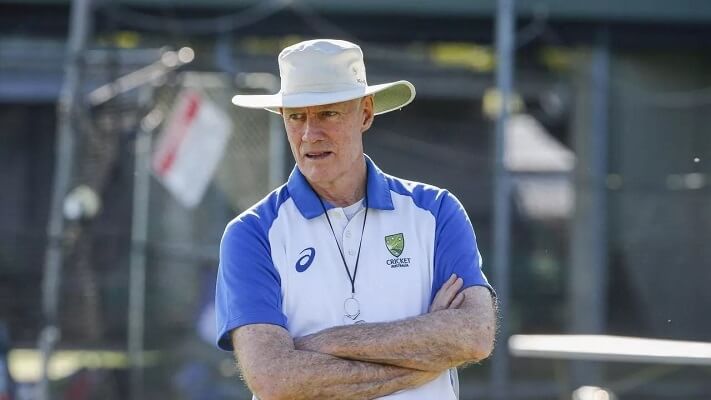
One of the most controversial incidents during Greg Chappell’s coaching tenure was his alleged interference in team matters, which resulted in a strained relationship with senior players like Sourav Ganguly. The public fallout and lackluster team performances during his tenure left a sour taste in the mouths of many Indian cricket fans. While Chappell’s coaching era may not be remembered for on-field triumphs, it did prompt a period of reflection and change in Indian cricket, paving the way for a more player-centric and cohesive approach in the years to come.
Greg Chappell’s coaching tenure with the Indian National Cricket Team was marked by controversy and mixed results, and he did not achieve many significant on-field milestones during his time as coach. Nevertheless, here is a table summarizing some of the notable events and developments during his coaching stint:
| Achievement / Contribution | Description |
|---|---|
| Experimentation with Young Talents | Chappell introduced and groomed young talents like Suresh Raina, Irfan Pathan, and MS Dhoni, who would go on to become key players for the Indian team in the future. |
| Attempted Cultural and Fitness Transformation | He aimed to instill a more professional and athletic culture within the team, emphasizing fitness and agility as key components of success. This approach contributed to a shift in the team’s outlook towards fitness. |
| 2006 ICC Champions Trophy Semifinal | Under Chappell’s coaching, India reached the semifinals of the 2006 ICC Champions Trophy, though they were eventually defeated by the West Indies. |
| Controversial Relationship with Senior Players | Chappell’s strained relationship with senior players, particularly Sourav Ganguly, became a focal point of his tenure and led to considerable controversy. |
While Greg Chappell’s time as the coach of the Indian cricket team was marked by turbulent moments and controversy, it did bring about some changes in team dynamics and player development that had a lasting impact on Indian cricket. However, his coaching era is often remembered more for the off-field drama than on-field successes.
Gary Kirsten
Gary Kirsten, the South African cricketing legend, assumed the role of the coach for the Indian National Cricket Team from 2008 to 2011, and his tenure is widely regarded as one of the most successful and transformative periods in Indian cricket history. Kirsten’s calm and composed demeanor, along with his hands-off coaching approach, created a harmonious environment within the team. Under his guidance, the Indian cricket team achieved numerous milestones, with one of the most significant being the triumph in the 2011 ICC Cricket World Cup. Kirsten’s ability to empower players and encourage them to express themselves on the field was instrumental in India’s success during this period.
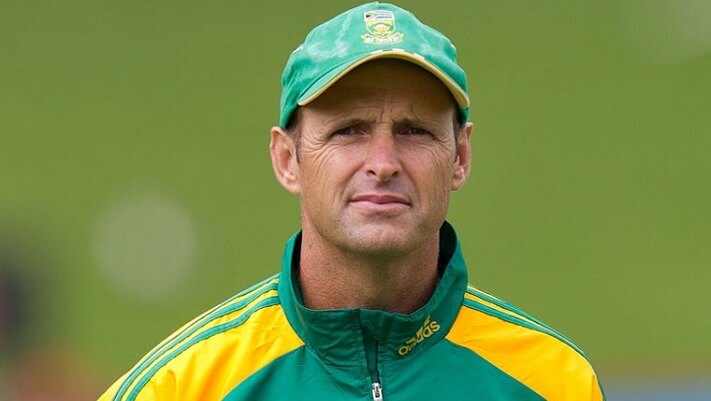
One of the hallmark achievements of Gary Kirsten’s coaching stint was India’s victory in the 2011 Cricket World Cup, held on home soil. The team’s performance throughout the tournament was exceptional, with Kirsten’s strategic inputs playing a crucial role in their success. His emphasis on mental conditioning, meticulous planning, and keeping the team grounded during high-pressure situations allowed India to lift the coveted World Cup trophy after a gap of 28 years. Beyond the World Cup, Kirsten’s impact on Indian cricket extended to the Test format as well, with India becoming the number-one ranked Test team during his coaching tenure. His coaching era is remembered not only for the numerous titles and accolades but also for the lasting legacy of professionalism and self-belief instilled in the Indian cricket team.
Here’s a table summarizing some of Gary Kirsten’s highest achievements as the coach of the Indian National Cricket Team:
| Achievement | Description |
|---|---|
| 2011 ICC Cricket World Cup Champions | Under Kirsten’s coaching, India won the 2011 Cricket World Cup, achieving this milestone on home soil after a gap of 28 years. |
| Number One Ranking in Test Cricket (2009) | India became the top-ranked Test team in the ICC rankings under Kirsten’s coaching, highlighting their dominance in the longest format of the game. |
| Series Wins in Major Test-Playing Nations | India achieved Test series victories in countries like Australia, South Africa, and New Zealand during Kirsten’s tenure, showcasing their ability to perform well in challenging overseas conditions. |
| Developing a Balanced and Confident Team | Kirsten played a pivotal role in developing a well-balanced and confident Indian cricket team, nurturing young talents, and building a winning culture within the squad. |
| Player Empowerment and Expression | Kirsten’s coaching philosophy emphasized player empowerment and the freedom for players to express themselves on the field, which led to improved individual and team performances. |
Gary Kirsten’s coaching era with the Indian cricket team was marked by a series of remarkable achievements, including India’s Cricket World Cup victory, their ascent to the top of the Test rankings, and significant overseas Test series wins. His emphasis on nurturing talent and creating a harmonious team environment left an enduring legacy in Indian cricket.
Ravi Shastri
Ravi Shastri, the former Indian all-rounder, assumed the role of the head coach for the Indian National Cricket Team in 2017, and his coaching tenure was marked by a period of aggressive and fearless cricket. Shastri brought a passionate and no-nonsense approach to the team, instilling a sense of confidence and self-belief among the players. Under his guidance, the Indian cricket team achieved success across formats, with notable victories in both Test and limited-overs cricket.
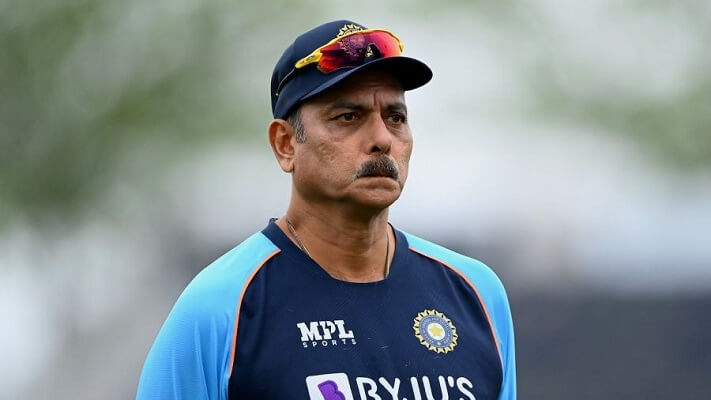
One of the defining moments of Ravi Shastri’s coaching tenure was India’s historic Test series win in Australia in 2018-19, where they became the first Asian team to triumph in a Test series Down Under. Shastri’s emphasis on fitness and mental toughness played a significant role in India’s overseas success. His coaching style encouraged players to express themselves without fear of failure, leading to the emergence of young talents like Prithvi Shaw and Rishabh Pant. While Shastri’s tenure was not without its share of challenges, his impact on the team’s aggressive mindset and competitive spirit was undeniable, making him a significant figure in Indian cricket coaching history.
Here’s a table summarizing some of Ravi Shastri’s highest achievements as the head coach of the Indian National Cricket Team:
| Achievement | Description |
|---|---|
| Historic Test Series Win in Australia (2018-19) | India became the first Asian team to win a Test series in Australia under Shastri’s coaching, marking a significant milestone in Indian cricket history. |
| Number One Ranking in Test Cricket (2019) | Under Shastri’s coaching, India achieved the number-one ranking in Test cricket, reflecting their dominance in the longest format of the game. |
| Consistent Success in Limited-Overs Cricket | India enjoyed consistent success in One Day Internationals (ODIs) and Twenty20 Internationals (T20Is) under Shastri, including series wins against top teams and competitive performances in ICC events. |
| Development of Young Talents | Shastri played a role in nurturing and giving opportunities to young talents like Prithvi Shaw, Rishabh Pant, and Shubman Gill, who emerged as promising stars during his tenure. |
| Emphasis on Fitness and Mental Toughness | Shastri’s coaching philosophy emphasized fitness, discipline, and mental toughness, which contributed to the team’s overall improvement and competitiveness on the international stage. |
Ravi Shastri’s coaching era with the Indian cricket team witnessed several significant achievements, including historic overseas Test series wins, consistent success in limited-overs cricket, and the development of young talents. His emphasis on a fearless and competitive mindset left a lasting impact on the Indian cricket team’s approach to the game.
Anil Kumble
Anil Kumble, one of India’s cricketing legends and a former captain, took up the role of the head coach for the Indian National Cricket Team in 2016. Kumble brought to the table a wealth of cricketing knowledge and experience, having been one of the most successful and respected bowlers in the history of the sport. His coaching philosophy was grounded in discipline, professionalism, and a strong work ethic. Under Kumble’s guidance, the Indian cricket team saw a renewed focus on fitness and mental resilience, with an emphasis on pushing the boundaries of performance.
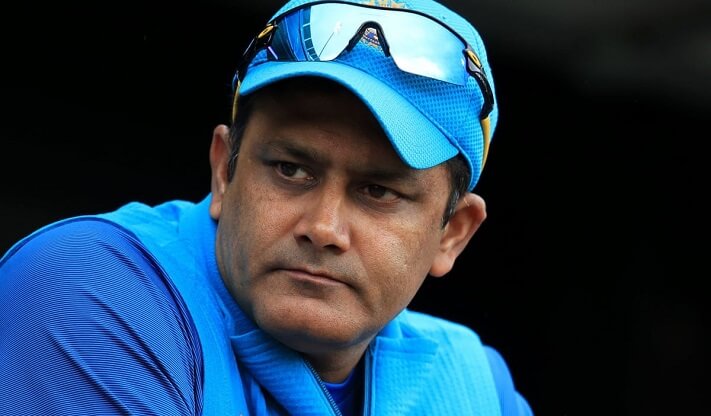
During his tenure, one of the standout achievements was India’s impressive run in Test cricket. The team achieved the number one ranking in the ICC Test rankings under Kumble’s coaching, displaying remarkable consistency and competitiveness in the longest format of the game. Kumble’s meticulous planning and strategic insights were instrumental in India’s Test successes, and his influence extended to developing a cohesive team spirit. While his coaching tenure was relatively short-lived due to differences with the team’s captain at the time, Kumble’s impact on the players and the team’s overall approach to the game is still remembered as a crucial phase in Indian cricket history.
Here’s a table summarizing some of Anil Kumble’s highest achievements as the head coach of the Indian National Cricket Team:
| Achievement | Description |
|---|---|
| Number One Ranking in Test Cricket (2016-2017) | Under Kumble’s coaching, India achieved the number one ranking in the ICC Test rankings, showcasing their dominance in the longest format of the game. |
| 2016-17 Border-Gavaskar Trophy Victory | India won the Border-Gavaskar Trophy against Australia during Kumble’s coaching tenure. The series win was significant, and Kumble’s strategic inputs played a crucial role in the team’s success. |
| Focusing on Fitness and Mental Toughness | Kumble emphasized the importance of fitness and mental resilience, leading to an overall improvement in the team’s athleticism and competitiveness. |
| Development of Spin Bowling Talent | As a legendary spinner himself, Kumble played a role in nurturing and mentoring young spin-bowling talents within the team, contributing to their growth and success. |
Anil Kumble’s coaching era was marked by notable achievements, particularly in Test cricket, where India became the top-ranked team and enjoyed a successful series victory against Australia. His commitment to discipline, professionalism, and player development left a lasting impact on the Indian cricket team’s approach and performance during his tenure.
Rahul Dravid
Rahul Dravid, fondly known as “The Wall” during his playing days, transitioned into a coaching role and assumed the position of the head coach for the Indian National Cricket Team. Dravid’s appointment was met with great enthusiasm and optimism, given his illustrious cricketing career and reputation for being a meticulous and technically sound batsman. As a coach, Dravid brought a calm and composed demeanor to the team, which resonated well with the players. His coaching philosophy focused on nurturing and mentoring young talents, with a strong emphasis on the development of solid cricketing fundamentals.
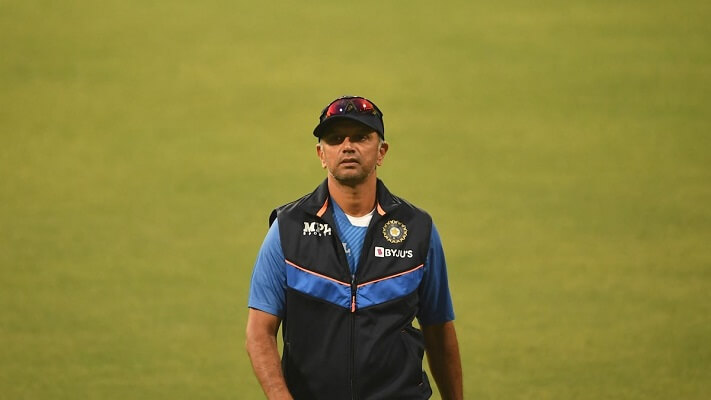
One of Rahul Dravid’s significant contributions as the coach of the Indian team was his role in nurturing and grooming the next generation of cricketers. Under his mentorship, several young talents emerged and made their mark on the international stage. Dravid’s leadership extended to the National Cricket Academy (NCA), where he played a pivotal role in shaping the development programs for aspiring cricketers. His efforts in providing a structured pathway for young players ensured a bright future for Indian cricket, and his influence as both a coach and mentor has been invaluable in maintaining India’s cricketing excellence.
Rahul Dravid had recently taken up the coaching role for the Indian National Cricket Team’s senior side. That’s why a table with some of Rahul Dravid’s notable contributions and roles in Indian cricket may be incomplete as he is currently a coach.
| Achievement / Contribution | Description |
|---|---|
| Legendary Test and ODI Career | Rahul Dravid’s distinguished playing career included over 13,000 runs in Test cricket and more than 10,000 runs in One Day Internationals (ODIs), making him one of India’s greatest cricketers. |
| Captaincy Stint for the Indian Team | Dravid served as the captain of the Indian cricket team in both Tests and ODIs, leading the team during challenging periods and achieving notable victories. |
| Mentorship and Coaching at the National Cricket Academy (NCA) | Before coaching the senior team, Dravid played a crucial role in nurturing young talents at the NCA, focusing on their skill development and character building. |
| Coaching the India Under-19 Cricket Team | Dravid coached the India Under-19 cricket team, guiding them to the ICC Under-19 Cricket World Cup victory in 2018. His coaching efforts were instrumental in shaping future stars. |
Please refer to more recent sources for any coaching achievements that may have occurred recently.
How Is the Head Coach of the Indian Cricket Team Chosen?
The responsibility of appointing the head coach of the Indian cricket team lies with the Cricket Advisory Committee (CAC). Comprising former Indian cricketing legends Madan Lal, Rudra Pratap Singh, and Sulakshana Naik, the CAC plays a crucial role in selecting the candidate who will lead Team India.
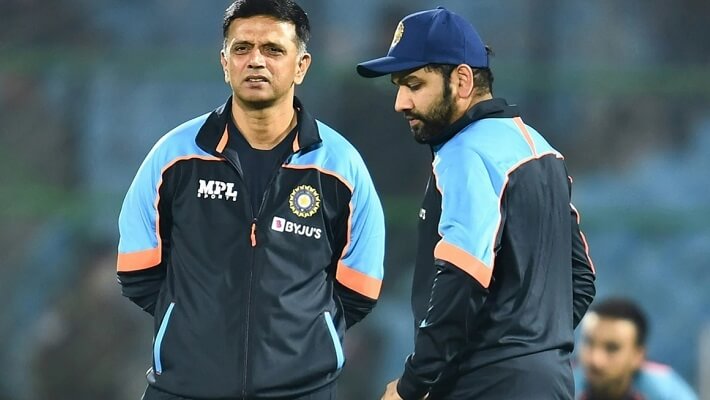
Each member of the committee brings their own illustrious cricketing career to the table. Madan Lal, a key member of the triumphant 1983 World Cup-winning squad, brings valuable experience to the selection process. Sulakshana Naik, renowned for her contributions to Indian cricket with 46 ODI appearances, 31 T20 matches, and 2 Test matches, offers a unique perspective. Rudra Pratap Singh, who has served as a national selector and made significant contributions as an Indian bowler, adds his insights to the decision-making process.
In the selection process, which took place in June 2020, candidates were required to present their vision for Indian cricket’s future and engage in interview sessions, ensuring a comprehensive evaluation of their suitability for the coveted role of head coach.
What Does the National Cricket Coach Do?
The role of the National Cricket Coach encompasses a multifaceted set of responsibilities. While training and preparation are key components, their duties extend well beyond that. These coaches are tasked with meticulously planning and organizing training sessions, both for individual players and the team as a whole. However, in the case of the national cricket team, where players typically possess a high level of skill and expertise, the coach’s role transcends traditional training.
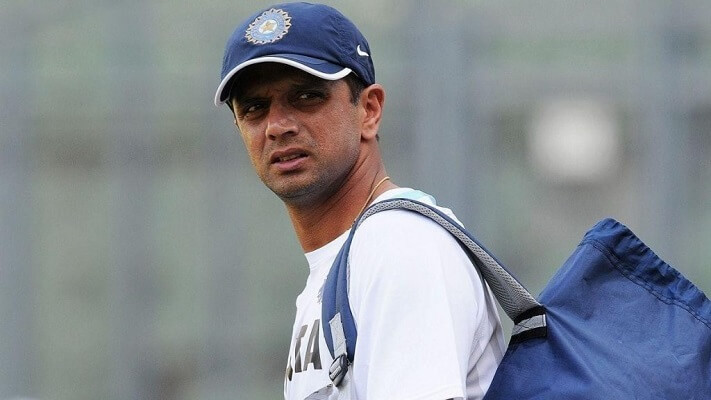
Unlike sports with faster-paced formats like football, cricket allows coaches to take a more strategic and contemplative approach. Rather than making instant decisions on the field, the coach’s focus lies on helping players realize their full potential. This involves boosting their morale during high-pressure situations, offering timely advice, and devising effective game strategies. In essence, the coach serves as a mentor, motivator, and strategist, guiding the team towards achieving better results and maintaining a winning mindset.
Conclusion
In conclusion, the history of the India National Cricket Team coaches is a fascinating journey marked by diverse personalities, coaching philosophies, and contributions to the nation’s cricketing heritage. These coaches have played a crucial role in shaping the team’s destiny, guiding players through triumphs and challenges, and leaving a lasting legacy on the sport. From the pioneering approach of John Wright to the controversial yet impactful tenure of Greg Chappell, and the harmonious and successful era under Gary Kirsten, each coach has added a unique chapter to Indian cricket history.
The coaches of the Indian National Cricket Team have not only focused on strategic aspects but have also contributed to the development of a strong team culture, fostering young talents, and instilling a sense of self-belief among the players. Their influence extends beyond the boundary ropes, transcending generations and inspiring future cricketers. As the team continues to evolve and strive for excellence, the coaches remain integral figures in the journey of Indian cricket, serving as mentors, strategists, and ambassadors of the sport on the international stage.
Video
FAQ
Q: Who is the current coach of the India National Cricket Team?
A: Rahul Dravid is the head coach of the India National Cricket Team.
Q: Who was the first foreign coach of the Indian cricket team?
A: The first foreign coach of the Indian cricket team was John Wright, a former New Zealand cricketer, who took on the role in 2000.
Q: What is the role of a cricket coach in the national team?
A: The role of a cricket coach in the national team includes planning and organizing training sessions, strategizing for matches, mentoring players, and fostering a winning team culture.
Q: Which coach led the Indian team to victory in the 2011 ICC Cricket World Cup?
A: Gary Kirsten, the South African coach, was at the helm when India won the 2011 ICC Cricket World Cup.
Q: How do coaches contribute to the development of young talents in the team?
A: Coaches like Rahul Dravid and Anil Kumble have played pivotal roles in nurturing and developing young talents through their coaching and mentorship.
Q: What were the key achievements during Ravi Shastri’s coaching tenure?
A: Ravi Shastri’s coaching tenure included India’s historic Test series win in Australia in 2018-19 and consistent success in limited-overs cricket.
Q: What is the significance of the Cricket Advisory Committee (CAC) in coach selection?
A: The CAC is responsible for selecting the head coach of the Indian cricket team, ensuring that experienced and knowledgeable individuals are involved in the decision-making process.
Q: How do coaches address the mental aspects of the game for the players?
A: Coaches like Rahul Dravid and Gary Kirsten have emphasized mental toughness, providing guidance to players in handling high-pressure situations and maintaining a competitive mindset.
Q: What role does the National Cricket Academy (NCA) play in player development?
A: The NCA, under the guidance of coaches like Rahul Dravid, serves as a crucial institution for honing and nurturing young cricketing talents in India.
Q: How are coaches selected for the India National Cricket Team, and what are their roles?
A: Coaches for the India National Cricket Team are typically selected by the Board of Control for Cricket in India (BCCI). The selection process often involves interviews and assessments. The coaching staff plays a crucial role in team development, including training, strategizing, and mentoring players. They work closely with the team to improve performance, develop game plans, and provide guidance to players at both individual and team levels.

I’m Johar, hailing from the vibrant nation of India. My journey into the realm of online sports betting began as a curiosity and quickly transformed into a passion. With a background in mathematics and a fascination for sports, I found myself naturally drawn to the world of odds, probabilities, and strategic wagering.
Through my articles, I aim to bridge the gap between the complexities of sports betting and the everyday bettor, offering insights, tips, and a deeper understanding of this thrilling pastime. My commitment lies not only in helping others make informed betting decisions but also in promoting responsible gambling practices within the diverse and dynamic landscape of Indian sports betting.
